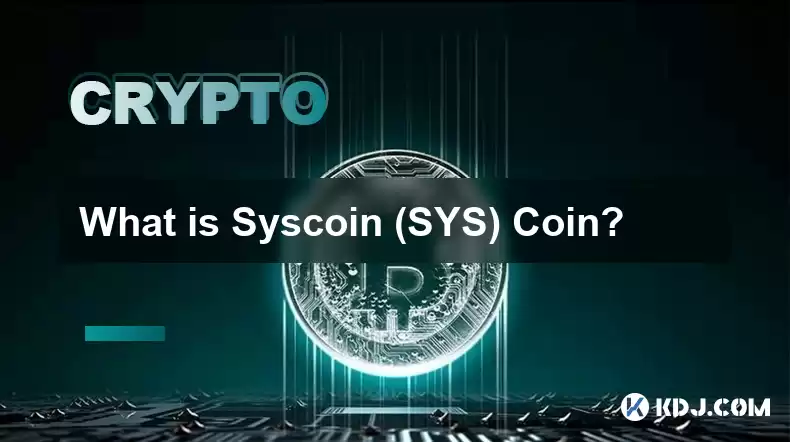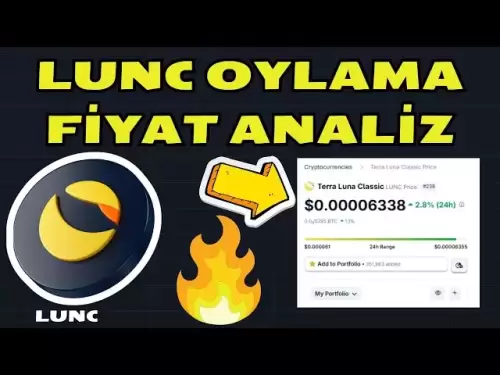-
 Bitcoin
Bitcoin $117500
2.04% -
 Ethereum
Ethereum $3759
3.02% -
 XRP
XRP $3.171
3.30% -
 Tether USDt
Tether USDt $1.000
0.03% -
 BNB
BNB $782.4
2.52% -
 Solana
Solana $187.2
5.62% -
 USDC
USDC $0.0000
0.02% -
 Dogecoin
Dogecoin $0.2380
5.26% -
 TRON
TRON $0.3175
1.07% -
 Cardano
Cardano $0.8227
4.03% -
 Hyperliquid
Hyperliquid $44.50
5.44% -
 Sui
Sui $4.020
10.07% -
 Stellar
Stellar $0.4396
6.28% -
 Chainlink
Chainlink $18.32
4.55% -
 Hedera
Hedera $0.2628
10.71% -
 Bitcoin Cash
Bitcoin Cash $554.8
4.90% -
 Avalanche
Avalanche $24.20
4.60% -
 Litecoin
Litecoin $113.7
2.31% -
 Shiba Inu
Shiba Inu $0.00001413
5.99% -
 UNUS SED LEO
UNUS SED LEO $8.984
0.11% -
 Toncoin
Toncoin $3.326
7.22% -
 Ethena USDe
Ethena USDe $1.001
0.00% -
 Uniswap
Uniswap $10.49
4.56% -
 Polkadot
Polkadot $4.092
4.02% -
 Monero
Monero $326.6
1.30% -
 Dai
Dai $1.000
-0.01% -
 Bitget Token
Bitget Token $4.570
2.49% -
 Pepe
Pepe $0.00001267
5.10% -
 Aave
Aave $297.3
3.10% -
 Cronos
Cronos $0.1344
4.10%
What is Syscoin (SYS) Coin?
Syscoin combines the benefits of Bitcoin (security and decentralization) and Ethereum (smart contracts and dApps) through its unique Z-DAG technology, enabling instant and feeless transactions.
Dec 19, 2024 at 10:17 pm

Key Points
- Syscoin is a decentralized blockchain platform that combines the best features of Bitcoin and Ethereum.
- It offers a scalable, secure, and user-friendly platform for developing and deploying blockchain applications.
- Syscoin's unique Z-DAG technology allows for instant and feeless transactions, making it ideal for everyday use.
What is Syscoin (SYS) Coin?
Syscoin (SYS) is a decentralized blockchain platform that aims to bridge the gap between Bitcoin and Ethereum. It combines the best features of both platforms, offering a highly scalable, secure, and easy-to-use solution for developers and users alike.
Key Features of Syscoin:
- Proof-of-Work Security: Syscoin is secured by a robust Proof-of-Work consensus algorithm, similar to Bitcoin. This ensures the security and immutability of the blockchain.
- Scalability with Z-DAG: Syscoin's unique Z-DAG (Zero-Knowledge Directed Acyclic Graph) technology enables extremely fast and feeless transactions. Z-DAG allows for off-chain transactions to be processed in parallel, reducing congestion on the main blockchain.
- Smart Contracts and Tokens: Syscoin supports smart contracts and token issuance, allowing developers to create and deploy decentralized applications and tokens on its platform.
- User-Friendly Interface: Syscoin's user-friendly wallet and API make it easy for anyone to interact with the platform and its features.
Benefits of Using Syscoin:
- Fast and Cheap Transactions: Z-DAG allows for near-instant and feeless transactions, making it suitable for everyday use.
- Security and Reliability: The Proof-of-Work consensus algorithm ensures the security and immutability of the blockchain.
- Scalability and Flexibility: Z-DAG and other scalability solutions make Syscoin suitable for handling large volumes of transactions.
- Versatile Platform: Syscoin supports smart contracts, tokens, and a range of development tools, providing developers with a versatile platform for creating blockchain applications.
How Syscoin Works
Syscoin works by combining Proof-of-Work and Z-DAG technologies. The Proof-of-Work consensus algorithm ensures the security of the blockchain, while Z-DAG allows for instant and feeless transactions.
When a transaction is made on Syscoin, it is broadcast to the network. Z-DAG nodes validate the transaction and store it in the Z-DAG. The transaction is then propagated to the Proof-of-Work miners, who include it in the next block.
This hybrid approach provides both security and scalability. The Proof-of-Work consensus algorithm ensures the security of the blockchain, while Z-DAG allows for fast and cost-effective transactions.
Syscoin Use Cases
Syscoin has numerous use cases, including:
- Payment and Remittances: Instant and feeless transactions make Syscoin suitable for everyday payments, remittances, and microtransactions.
- Supply Chain Management: Syscoin's traceability features can be used to track the movement of goods and ensure transparency in supply chains.
- Decentralized Finance (DeFi): Syscoin supports smart contracts and token issuance, making it a platform for developing and deploying DeFi applications.
- Gaming and Metaverse: Syscoin's scalability and fast transactions make it suitable for gaming and metaverse applications that require high throughput.
FAQs
Q: What is the difference between Syscoin and Bitcoin?
A: Syscoin combines the security of Bitcoin's Proof-of-Work consensus with the scalability of Z-DAG technology.
Q: What is the difference between Syscoin and Ethereum?
A
Disclaimer:info@kdj.com
The information provided is not trading advice. kdj.com does not assume any responsibility for any investments made based on the information provided in this article. Cryptocurrencies are highly volatile and it is highly recommended that you invest with caution after thorough research!
If you believe that the content used on this website infringes your copyright, please contact us immediately (info@kdj.com) and we will delete it promptly.
- Vaultz Capital's Bitcoin Bet: A Strategic Shift on the Aquis Exchange
- 2025-07-26 20:30:12
- Pi Coin, Wallet Features, and Coinbase: What's the Buzz?
- 2025-07-26 18:30:12
- Worldcoin, Punisher Coin, and the Meme Coin Mania: What's the Haps?
- 2025-07-26 18:30:12
- Conviction, Justice System, and Murders: A Look at Recent Cases and Shifting Perspectives
- 2025-07-26 18:50:11
- Shiba Inu, Remittix, and the Market Surge: What's the Hype?
- 2025-07-26 19:10:12
- Cardano Price, ADA Holders, and Leadership Criticism: What's the Real Deal?
- 2025-07-26 19:30:12
Related knowledge

What is Chainlink (LINK)?
Jul 22,2025 at 02:14am
Understanding Chainlink (LINK): The Decentralized Oracle NetworkChainlink is a decentralized oracle network designed to bridge the gap between blockch...

What is Avalanche (AVAX)?
Jul 22,2025 at 08:35am
What is Avalanche (AVAX)?Avalanche (AVAX) is a decentralized, open-source blockchain platform designed to support high-performance decentralized appli...

What is Polkadot (DOT)?
Jul 19,2025 at 06:35pm
Understanding the Basics of Polkadot (DOT)Polkadot (DOT) is a multi-chain network protocol designed to enable different blockchains to transfer messag...

What is Litecoin (LTC)?
Jul 23,2025 at 11:35am
Overview of Litecoin (LTC)Litecoin (LTC) is a peer-to-peer cryptocurrency that was created in 2011 by Charlie Lee, a former Google engineer. It is oft...

What is Monero (XMR)?
Jul 21,2025 at 10:07am
What is Monero (XMR)?Monero (XMR) is a decentralized cryptocurrency designed to provide enhanced privacy and anonymity for its users. Unlike Bitcoin a...

How to add indicators to Ethereum chart on TradingView?
Jul 19,2025 at 07:15am
What Is an Ethereum Chart on TradingView?The Ethereum chart on TradingView is a visual representation of the price movement of Ethereum (ETH) over a s...

What is Chainlink (LINK)?
Jul 22,2025 at 02:14am
Understanding Chainlink (LINK): The Decentralized Oracle NetworkChainlink is a decentralized oracle network designed to bridge the gap between blockch...

What is Avalanche (AVAX)?
Jul 22,2025 at 08:35am
What is Avalanche (AVAX)?Avalanche (AVAX) is a decentralized, open-source blockchain platform designed to support high-performance decentralized appli...

What is Polkadot (DOT)?
Jul 19,2025 at 06:35pm
Understanding the Basics of Polkadot (DOT)Polkadot (DOT) is a multi-chain network protocol designed to enable different blockchains to transfer messag...

What is Litecoin (LTC)?
Jul 23,2025 at 11:35am
Overview of Litecoin (LTC)Litecoin (LTC) is a peer-to-peer cryptocurrency that was created in 2011 by Charlie Lee, a former Google engineer. It is oft...

What is Monero (XMR)?
Jul 21,2025 at 10:07am
What is Monero (XMR)?Monero (XMR) is a decentralized cryptocurrency designed to provide enhanced privacy and anonymity for its users. Unlike Bitcoin a...

How to add indicators to Ethereum chart on TradingView?
Jul 19,2025 at 07:15am
What Is an Ethereum Chart on TradingView?The Ethereum chart on TradingView is a visual representation of the price movement of Ethereum (ETH) over a s...
See all articles

























































































